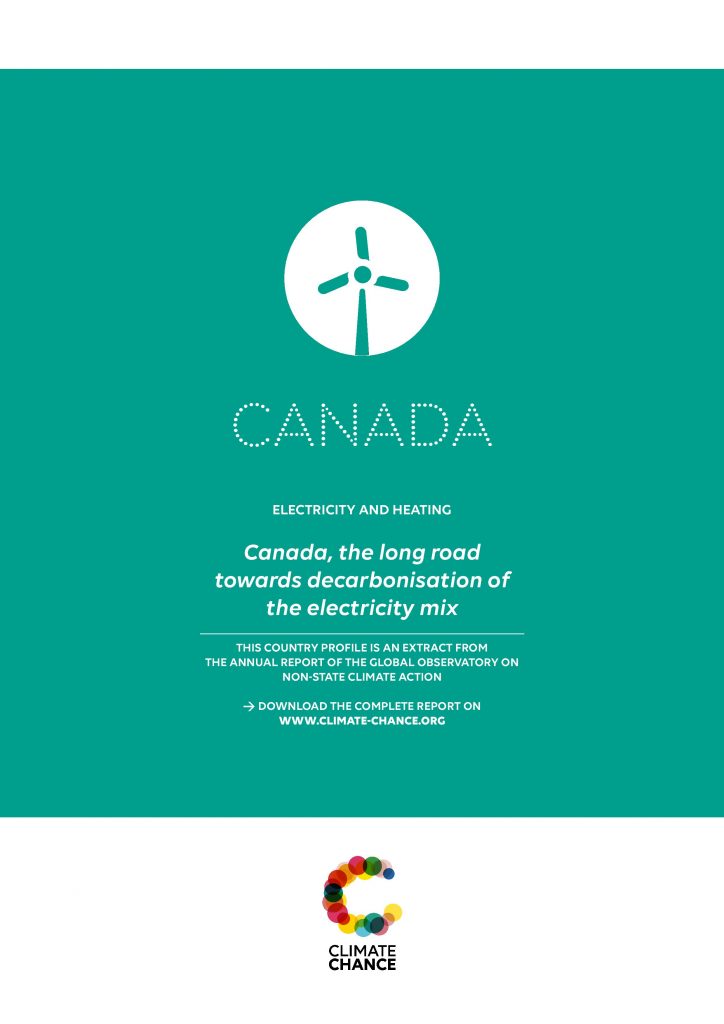Canada • The long road towards decarbonisation of the electricity mix
Canada needs to achieve total decarbonisation of its electricity production by 2050 if it is to achieve its climate commitments.

2018
Canada
Germán Bersalli • Fellow researcher, Univ. Grenoble Alpes, CNRS, INRA, Grenoble INP, GAEL, 38000 Grenoble, France
Introduction
Canada needs to achieve total decarbonisation of its electricity production by 2050 if it is to achieve its climate commitments. Fossil fuel power stations emitted 79 megatonnes of CO2eq (carbon dioxide equivalent) in 2015, which represents 10.9% of the 722 Mt of total GHG emissions in Canada1. Yet this country is the second producer of hydroelectricity in the world, after China and at the same level as Brazil. Canada’s hydroelectric reservoirs can provide balancing services to enable wind and solar power to be better integrated into the electric power grid. Geothermal energy and biomass also offer significant potential for both electricity and heat production. The new renewable energies also facilitate the gradual decentralisation of Canadian electricity systems, offering new opportunities for both public and private businesses and for community initiatives
Contents
1 • The gradual decarbonisation of the electricity mix
2 • Federal policies are quite ambitious yet not yet sufficient
3 • The central role of Canadian local authorities
4 • A highly concentrated industry faced with new innovative businesses
5 • The media, users and the social dimension of the transition: the example of smart networks
Conclusion
The provinces of Canada have very strong prerogatives in terms of energy and the environment. Most of the provinces have therefore set objectives to reduce GHG emissions and have taken measures towards achieving them. All these actions are harmonised in a federal plan aimed at the total decarbonisation of the electricity sector in the decades to come. Municipal authorities are also active in the climate field, urged on by citizens who are increasingly concerned. Finally, new technologies associated with renewable energy facilitate the decentralisation of energy systems, which opens opportunities for new businesses in various areas such as geothermal and the smart management of networks.


